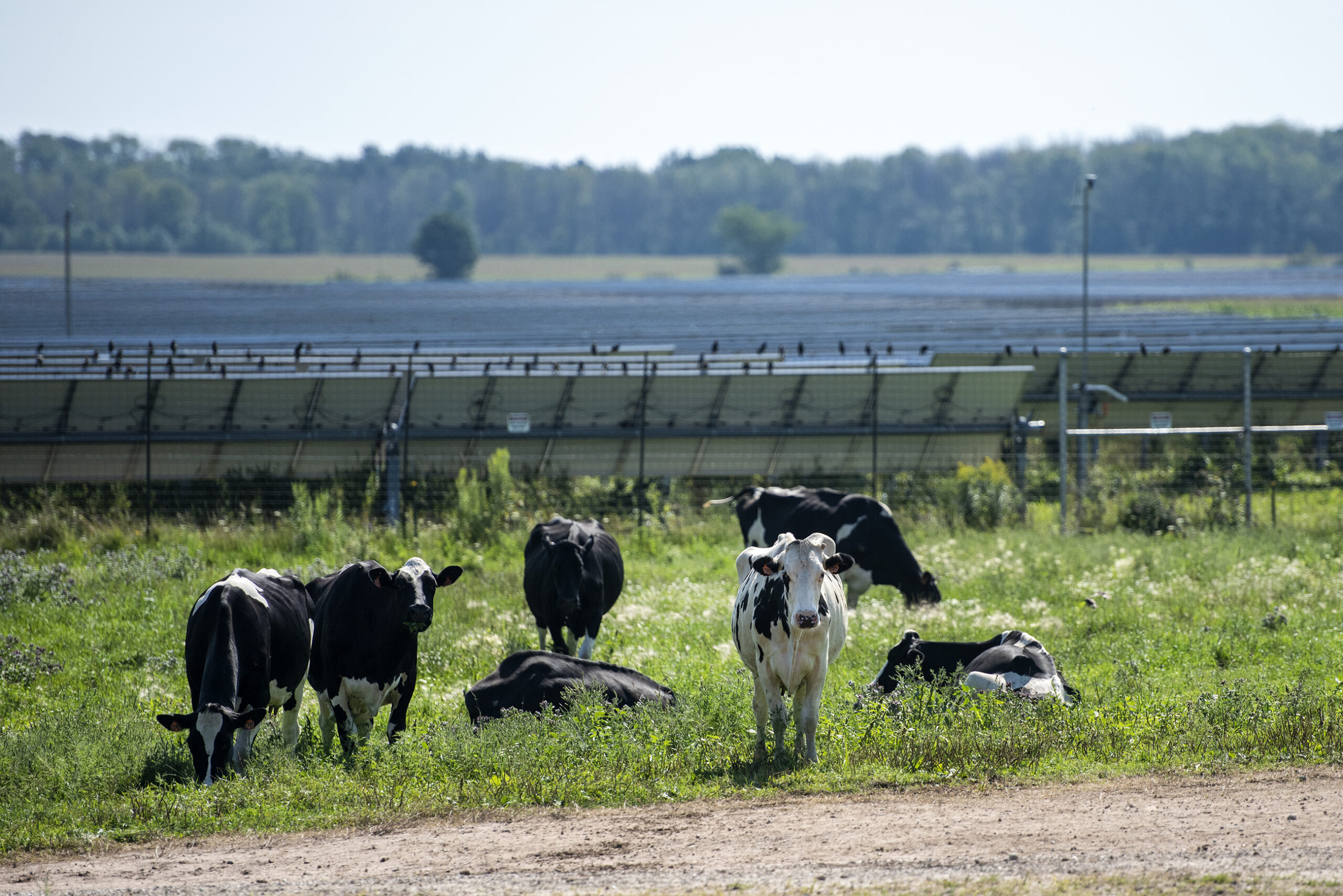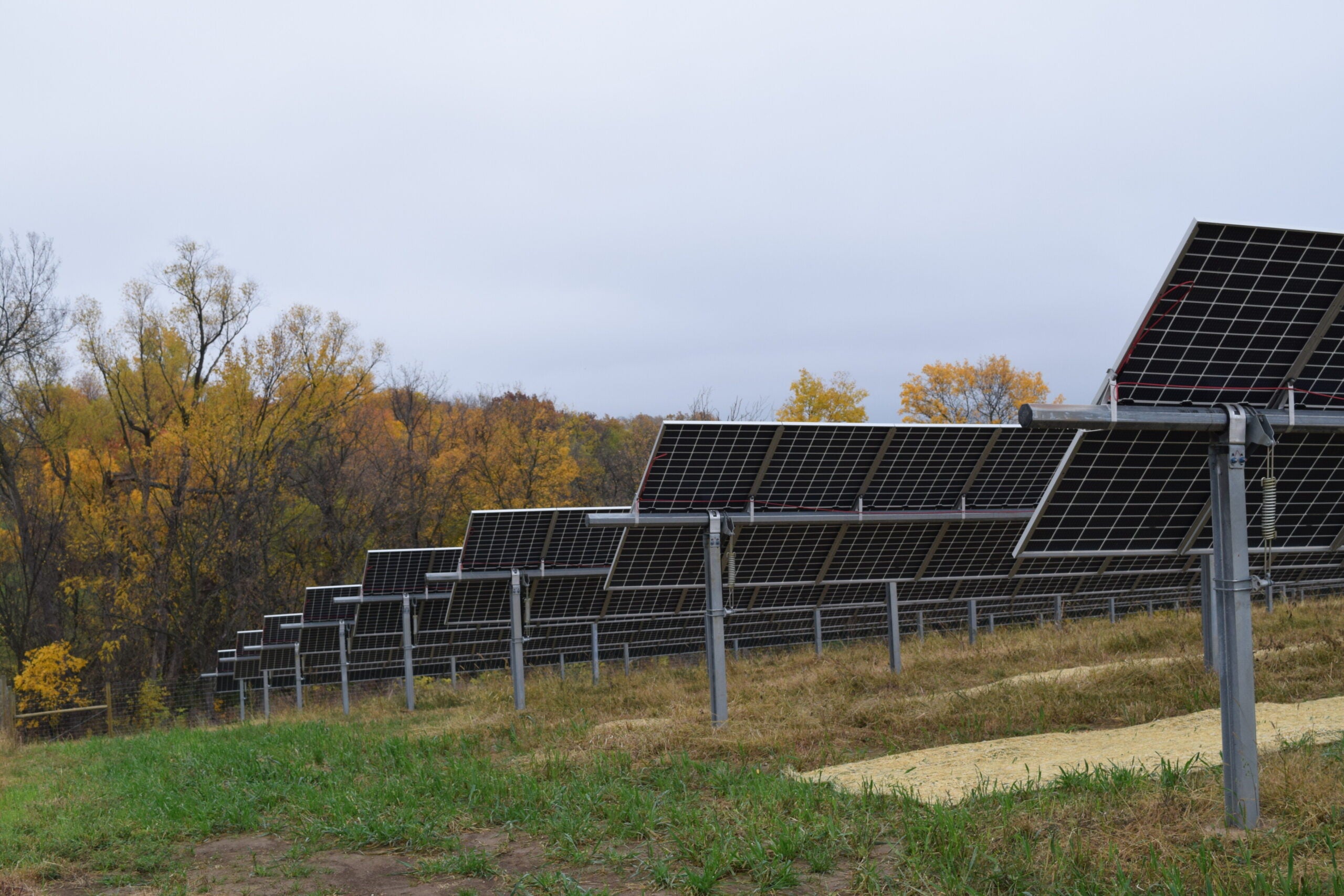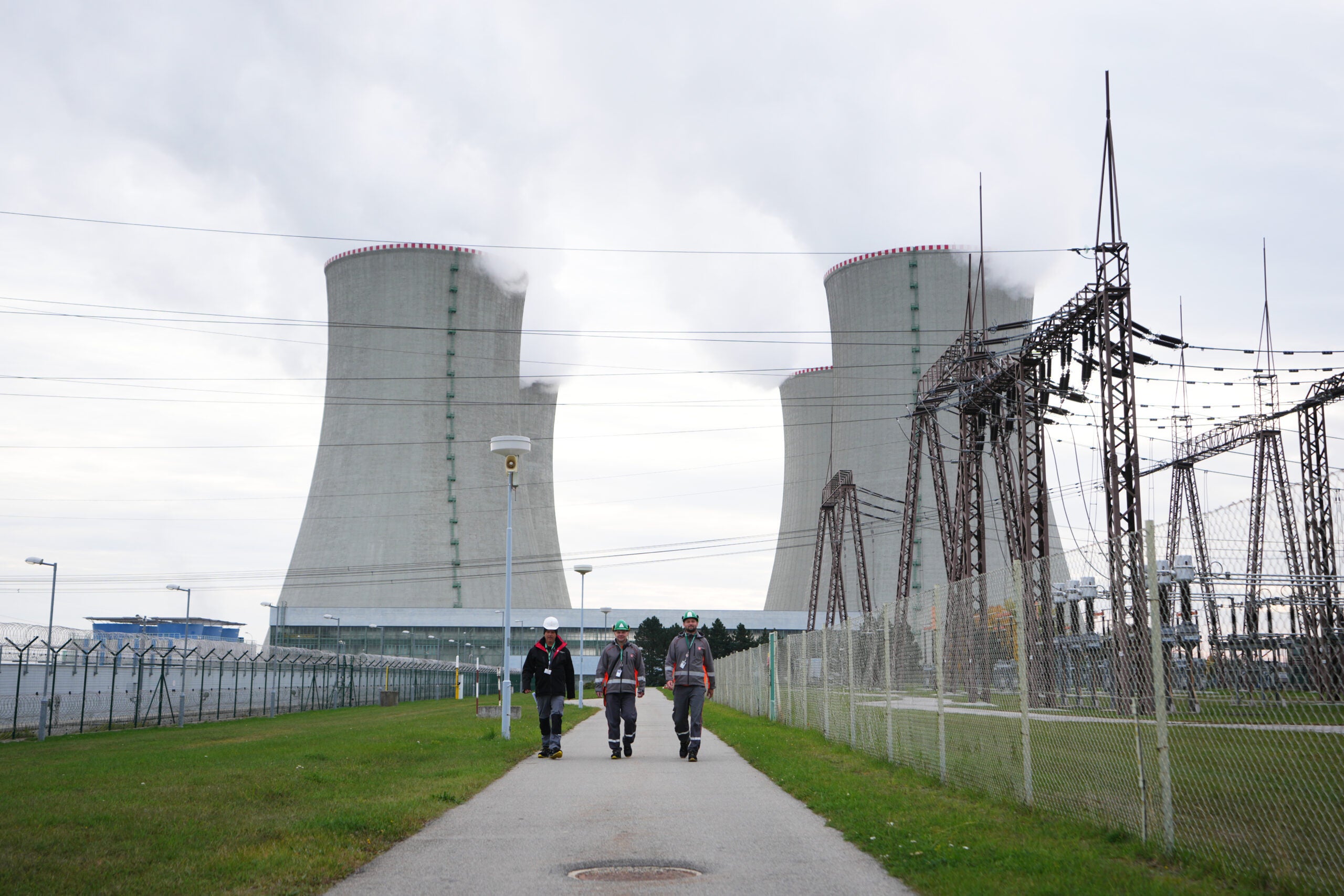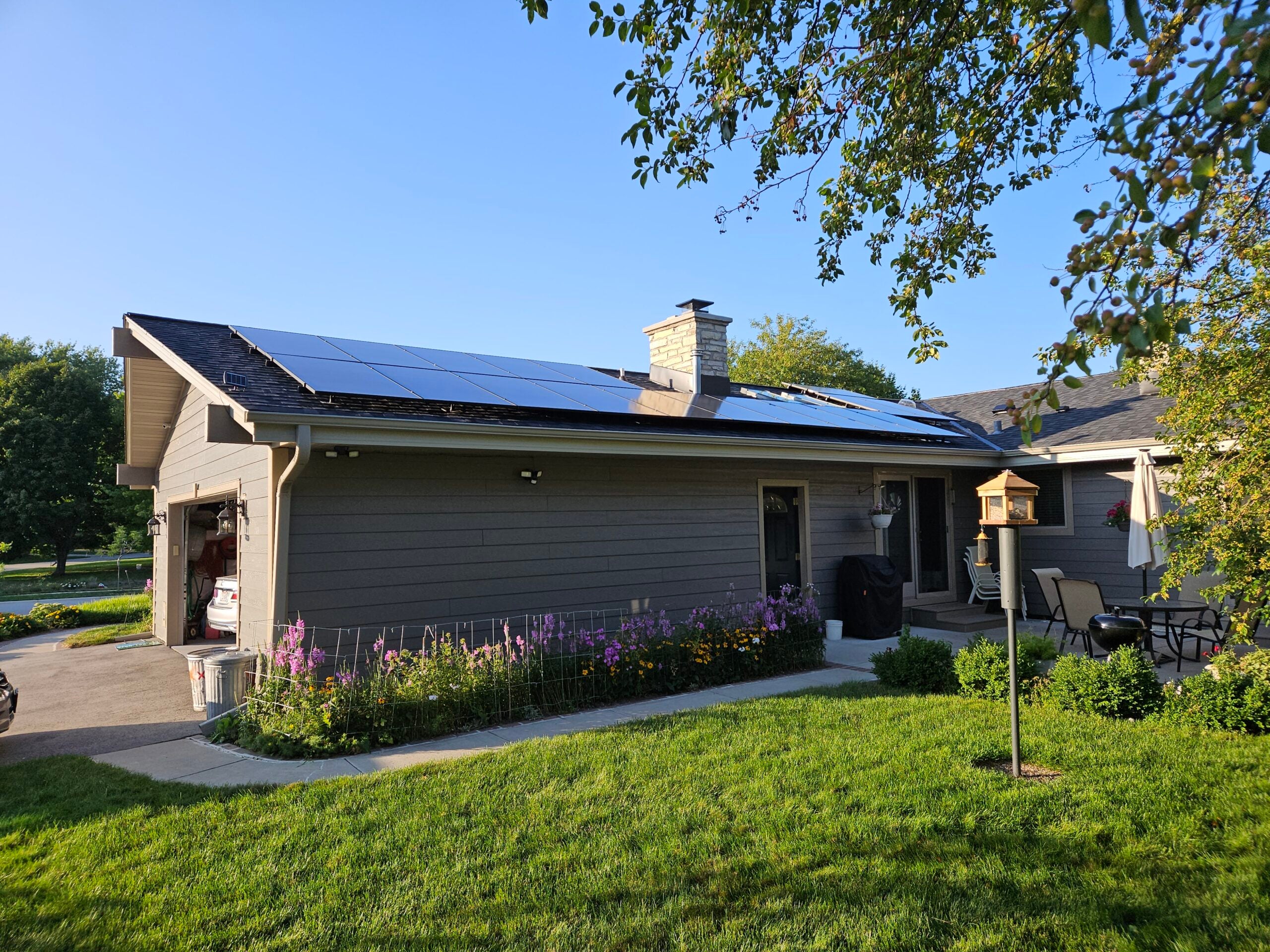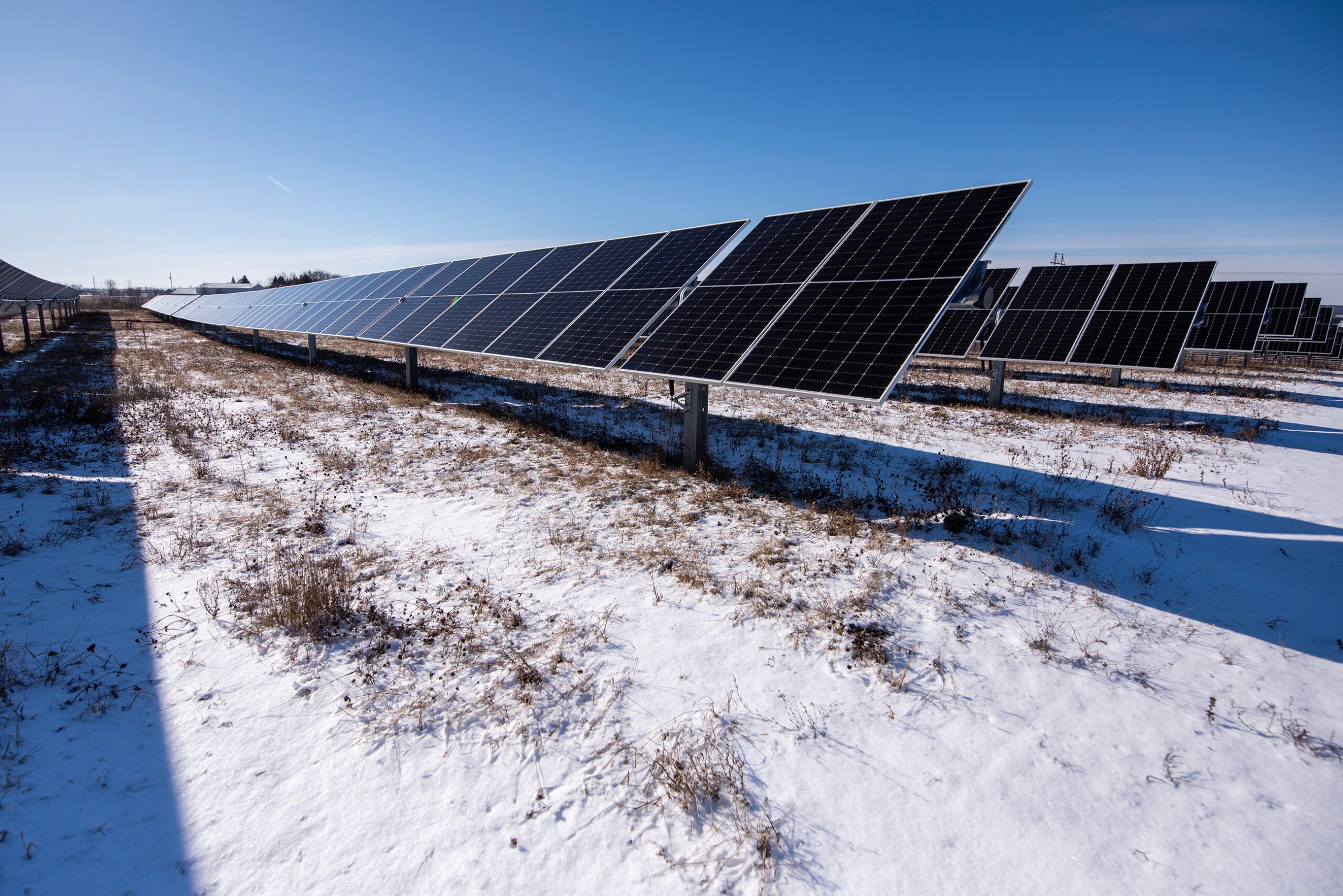Farm fields with solar power installations would no longer qualify for state tax credits under a new Republican bill. One GOP lawmaker claims it’s about protecting farmland from being used for “nonsense” renewable energy projects.
The legislation, introduced by state Rep. Ellen Schutt, R-Clinton, and state Sen. Cory Tomczyk, R-Mosinee, is brief. With two sentences, the bill would block farmers from receiving Wisconsin farmland preservation tax credits for any part of their fields with solar panels that aren’t specifically used to support farming.
During a Wednesday public hearing before the Assembly Committee on Ways and Means, Schutt said the bill is addressing a “loophole in current law” that allows farmers to get state funds meant to preserve farmland “despite completely changing the land to build solar energy facilities on it.”
News with a little more humanity
WPR’s “Wisconsin Today” newsletter keeps you connected to the state you love without feeling overwhelmed. No paywall. No agenda. No corporate filter.
“For example, if someone owns 1,000 acres in the farmland preservation program and built an energy facility on 500 acres of that land, that person will still receive 100 percent of the farmland preservation tax credit,” Schutt said. “This is wrong.”
Schutt said there’s been a substantial increase in solar projects that “permanently damaged the land” by removing topsoil.
Committee Chair Rep. John Macco, R-Ledgeview, agreed and called the practice “craziness.” He said he’s frustrated by the push for renewable wind and solar energy projects on agricultural land, which he called “nonsense.”
“And the fact that we could use literally 2 percent of those acres — we could have the same amount of power if we’d make nuclear power part of the portfolio standards,” Macco said.
Conservation advocacy group Clean Wisconsin opposes the legislation. Government relations director Erik Kanter said the state farmland preservation program already allows farmers to use land for energy production, namely by growing corn used to produce ethanol.
“And Wisconsin currently uses over 1 million acres of land for ethanol production,” Kanter said. “So, that’s 1 million acres not being used for food production, but for energy production.”
Kanter said only 3,500 acres of farmland are used for solar projects in Wisconsin. He pointed to a Clean Wisconsin study that suggests if those million acres were instead used for solar power, facilities “could generate enough electricity to power 804 billion electric vehicle miles annually.”
An analysis of the bill’s potential impacts from the Wisconsin Department of Agriculture, Trade and Consumer Protection says it could complicate things for the agency and county land conservation staff. DATCP Land and Resource Management Section Manager Katie Smith told lawmakers the agency wasn’t consulted on the bill. She said the legislation doesn’t specify how the total acreage used for solar power production would be identified. Smith said farmland preservation credits are granted through a “certificate of compliance.”
“So, this bill has not excluded these acres from the definition of qualifying acres,” Smith said. “So effectively, we would need to tell people your qualifying acres are not qualifying.”
Macco thanked Smith for her testimony and said he was “a little torqued off” at the bill authors for not including clear language excluding solar power from the definition of “qualifying acres” in the program. He said lawmakers know what they need to do, “but we also need to know how we need to do it.”
“So, lets get that figured out,” Macco said.
It’s unlikely Democratic Gov. Tony Evers, who is a supporter of renewable energy expansion, would sign the Republican bill to cut farmland preservation tax credits going toward land used for solar energy production.
The Wisconsin legislation stands in contrast to a bill signed by Democratic Michigan Gov. Gretchen Whitmer on Tuesday, allowing farmers to receive preservation credits while renting land for solar arrays.
Wisconsin Public Radio, © Copyright 2025, Board of Regents of the University of Wisconsin System and Wisconsin Educational Communications Board.

